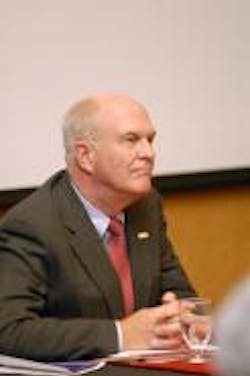“The administration now has an opportunity to name someone committed to both the safety and fuel economy programs that they run.” –Dan Becker, director of the Safe Climate Campaign, as told to the Detroit News on the withdrawal of Chuck Hurley’s nomination to lead NHTSA
It’s a shame that the nomination of Chuck Hurley to be the next chief administrator for the National Highway Traffic Safety Administration came and went so fast.
Late yesterday, word got out that Hurley withdrew his name from consideration due to growing opposition from environmental groups over his interactions with the automotive industry. The Detroit News reported that much of the flak Hurley got came in part for his work at the Insurance Institute for Highway Safety (IIHS) in the early 1990s, when he sided with automakers over the safety impacts of downsizing vehicles to increase fuel efficiency.
For starters, it’s surprising to see the opposition to Hurley’s nomination revolves around actions he took almost two decades ago – actions, I might add, that were about improving vehicle SAFETY of all things. His concern at the time – and it’s rightly placed – seems to have centered on the potential safety risks of smaller cars. That’s a good discussion to have, mind you.
He also seemed to be a good fit for NHTSA, based on his record. As I noted in an earlier post on Hurley’s nomination, he’s a former naval intelligence officer that went on to hold senior leadership positions with the National Safety Council (NSC) and IIHS over the last thirty years – working extensively with law enforcement on air bag and seat belt issues, teen driving, and child passenger safety – before going on to become CEO of Mothers Against Drunk Driving in 2005.
Yet from what I’ve seen of his record, he’s a guy that tends to stick to the facts, not the politics. While he supported the auto industry’s arguments against raising automobile fuel economy standards back in the 1990 – again, contending that such a move would result in smaller and more dangerous cars – he also suggested that automakers were exaggerating the safety benefits of antilock brakes back then as well, according to the Wall Street Journal. In a 1994 IIHS study comparing accident and insurance loss data for cars equipped with antilock brake systems to the same models with standard brakes, it found that claim frequency and the average insurance payments were roughly the same.
That doesn’t matter now, unfortunately, as Hurley withdrew his name from consideration before even getting a hearing in the Senate. Now we’ll just have to see who steps into the batter’s box next to take a swing for the top spot at NHTSA.
